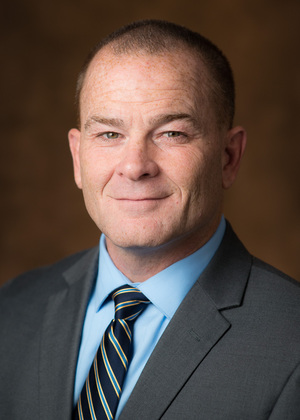Getting to Know: Social Sciences

College Relations publishes a monthly series of news articles, features and Q&A interviews highlighting various departments on campus in an effort to assist the faculty and staff in gaining an increased awareness about and understanding of each other’s roles and responsibilities.
The March Q&A is with Dr. Thomas Smith, Associate Professor in the Communication and Social Sciences department.
Q: How would you describe the Social Sciences program to someone who didn’t have any knowledge of it?
Social Science is a wide ranging term that refers to a host of disciplines. Generally, social science studies human society in a systematic fashion. Our program concentrates on the disciplines of History, Political Science, Anthropology, Economics, Psychology and Geography. Our department teaches the bulk of the first three categories, while the others are covered by different programs on campus.
Q: How does the Social Sciences program prepare students to understand current events?
The systematic study of human society and its relationships naturally informs an understanding of the world. A familiarity with core aspects of the social sciences allows a deeper grasp of the meaning of events and promotes an ability to engage with our present world, instead of just seeing our lives as a flitting by of happenings.
Q: Why is it important to study the past in History classes?
The past is the object of our inquiry and we systematically study it like other subjects. However, unlike other subjects, the past can never be recreated in the present. Yet, it always seems with us. Instead of the trite adage that the past repeats itself, which ignores the complexities of context, I prefer T. S. Eliot’s quote: “The historical sense involves a perception, not only of the past, but of its presence.”
Q: What does an education in the Social Sciences provide students?
An education in the Social Sciences provides students with an understanding of the major approaches to the study of human society. As our approach is systematic, the program develops critical thinking skills and also stresses oral and written communication.
Q: What career paths are the graduates of your program pursuing?
Many of our students are receiving teaching endorsements. We argue that rigorous, systematic study prepares our students for a wide variety of career paths after graduation. Often skipped over in the current discourse about the value of college relative to job placement, we adopt the traditional core meaning of education, which is the development of thinking skills, intellectual curiosity and oral and written aptitude.
Q: What does CSC’s Social Science program offer students that other colleges do not have?
Well, all rigorous Social Science programs will offer many of the same things I have mentioned. However, I do think that our program does a particularly good job at getting to know our students. We have the luxury of manageable class size and are consistently in our offices for student discussion.
Q: What are some gratifying moments you’ve had in your classes?
Our program stresses that the classroom learning experience is the most important aspect of our institution. My most gratifying moments are the daily strivings to have classrooms be intellectually stimulating, open environments that create high impact learning.
Category: Campus News, Social Sciences
